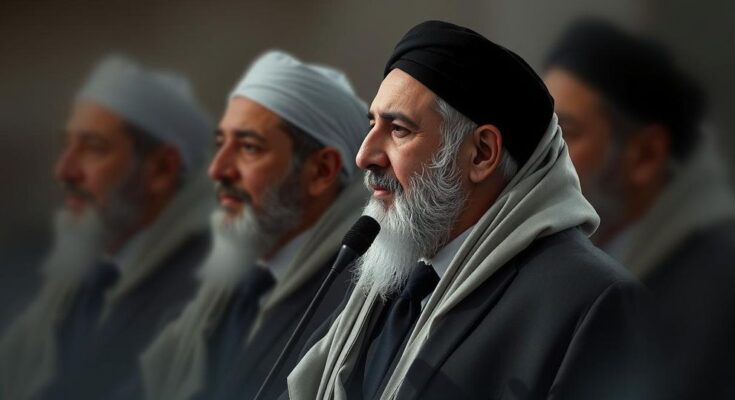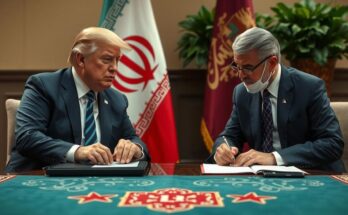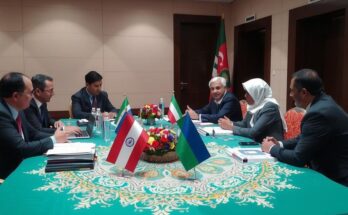Anwar Gargash, a senior UAE official, expressed deep concerns over the Islamist affiliations of the new Syrian leadership post-Assad, citing worrying ties to groups like Al-Qaeda and the Muslim Brotherhood. He underscored the necessity of caution while remaining optimistic about the potential for unity in Syria. Gargash also criticized Israeli airstrikes, advocating for a different approach in the context of Syria’s complex political shifts.
A senior official from the United Arab Emirates, Anwar Gargash, expressed the government’s concerns regarding the Islamist affiliations of the new Syrian leadership following the recent ousting of President Bashar al-Assad. While Gargash acknowledged the new rulers’ commitment to unity and inclusivity, he articulated worries about their connections to Islamist groups, including the Muslim Brotherhood and Al-Qaeda. He noted, “the nature of the new forces, the affiliation with the (Muslim) Brotherhood, the affiliation with Al-Qaeda, I think these are all indicators that are quite worrying.”
The recent offensive, which led to Assad’s removal, was primarily orchestrated by Hayat Tahrir al-Sham (HTS) – an entity linked to Al-Qaeda that many Western nations classify as a terrorist organization. In spite of this designation, HTS has made attempts to moderate its public posture. Gargash emphasized the importance of remaining vigilant, referencing the violent operations of groups like the Islamic State, which have plagued the region in recent years. He stated, “We have to be optimistic on the one hand and help Syrians… but at the same time we can’t ignore the region has seen episodes like this before, so we need to be on guard.”
Concerned about the broader implications of the situation, Gargash highlighted that Arab nations have a responsibility to avoid repeating previous misjudgments in regional politics. He also criticized the recent Israeli airstrikes targeting military bases in Syria, arguing that such strategies detract from the opportunities for peace and stability in the region. He claimed, “Using the crisis in Syria to structurally degrade Syrian capabilities might be seen a sensible thing from an Israeli practical point of view, but I think it’s dumb politics.” This perspective reflects the UAE’s complex geopolitical posture, especially following its normalization of relations with Israel in 2020.
This article addresses the concerns voiced by Anwar Gargash, a prominent UAE official, regarding the recent political shifts in Syria following the removal of Bashar al-Assad. The situation in Syria has been turbulent, with prolonged civil strife that saw the rise of various factions and groups, some of which hold Islamist ideologies. The actions of HTS and its connections to terrorism raise alarm among neighboring countries and the international community. Understanding the implications of these affiliations is critical for regional stability, especially given the history of violent extremism in the area.
In summary, the UAE’s stance reflects significant caution towards the new Syrian leadership, given their Islamist ties and the potential repercussions for regional stability. Gargash’s remarks illustrate an awareness of the delicate balance required in handling the evolving political landscape, emphasizing the need for vigilance alongside a commitment to fostering positive outcomes for the Syrian populace. The interplay of regional geopolitics, historical precedents, and the influence of foreign powers, particularly regarding Israel, shapes the ongoing discourse surrounding Syria’s future.
Original Source: www.hindustantimes.com




